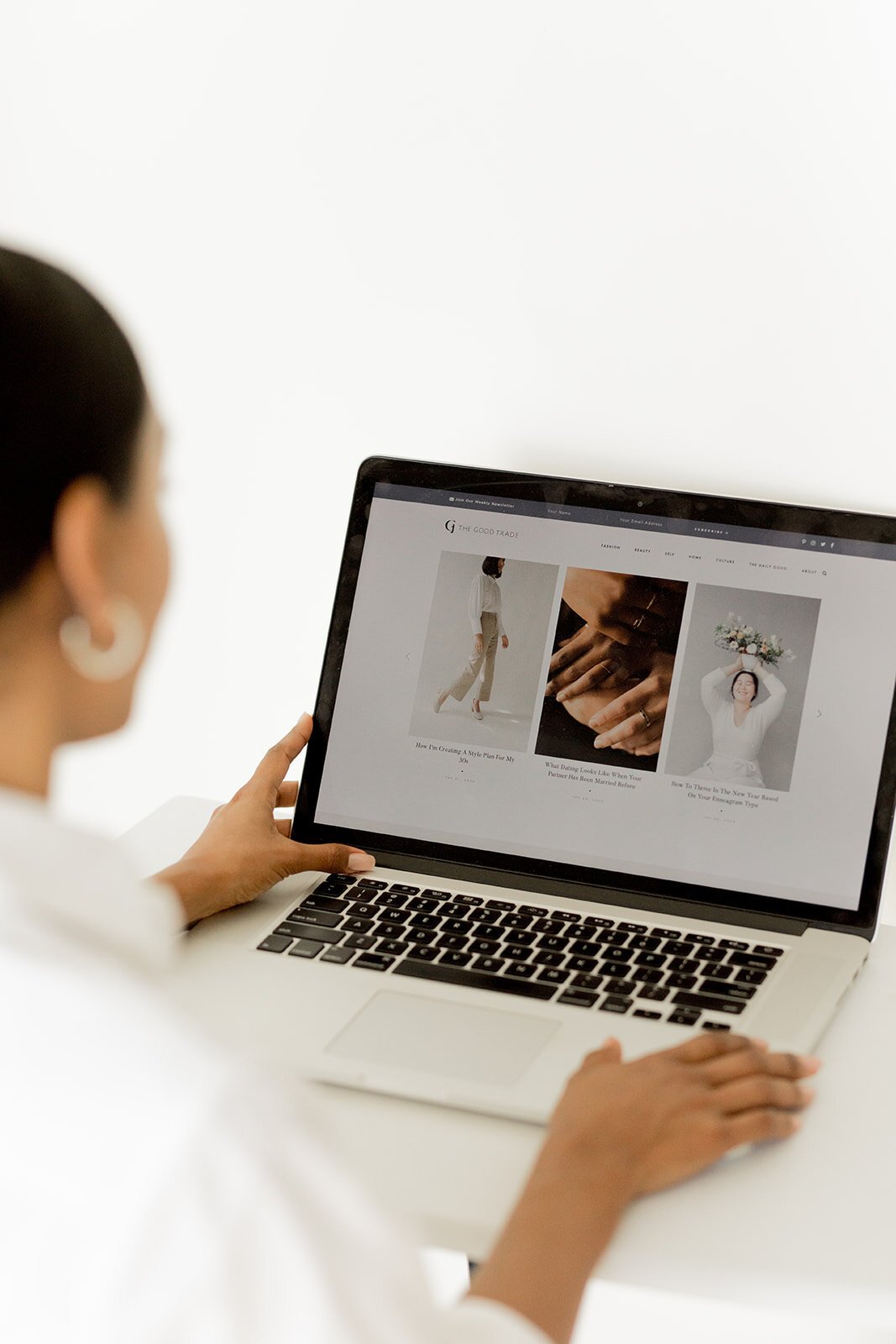
How To Support Someone Who’s Questioning Their Gender
I started questioning my gender nearly 16 years ago, in middle school.
I didn’t feel like a girl, and I didn’t want to be perceived as one either. But I didn’t have the language to express that at the time. Even if I did, I wouldn’t have felt safe saying anything out loud. Around that same time, my mom took me shopping and told me I “have a girl’s body” and I needed to “start dressing like a girl.” It shaped my entire understanding of sex and gender and delayed my coming out as nonbinary until I was 23 years old.
“Research has found that transgender and nonbinary people who are affirmed in their identities have far better mental health outcomes.”
I think a lot about how different my coming out process could’ve been if I had the language to describe my gender and the support to figure it out. A growing body of research has found that transgender and nonbinary people who are affirmed in their identities have far better mental health outcomes.
Additionally, supporting someone who is questioning their gender makes their coming out process easier. That doesn’t mean it’s straightforward, though: you might be worried about saying or doing the wrong thing. Here, two experts break down what you should know and how to show your support.
Know that there’s no script for when or how someone will question their gender
People can question their gender at any point in their lifespan, according to Dr. Alex Iantaffi, a family therapist, sex therapist, podcaster, and author of “How To Understand Your Gender,” “Life Isn’t Binary,” and “Gender Trauma.” “It can start in any number of ways: noticing discomfort with societal gendered expectations; distress at physical changes during puberty; just having known their gender since a young age; becoming very interested in trans experiences and then realizing that this is because they intimately relate to them,” they say. “There is no one way that questioning one’s gender looks like.”
Let them come to you
Safety and consent are two key factors that can affect whether someone feels safe talking about their gender openly, Iantaffi says. They need to feel like they’re in a safe environment and free to talk about their gender. “This means they are not being questioned or pressured by those around them but rather that they are truly choosing to talk about their gender because they want to,” they say.
“[A safe environment] means they are not being questioned or pressured.”
Tell them you appreciate their trust
When someone first tells you that they’re questioning their gender, the first thing you can say is, “Thank you for telling me.”
Dr. Lourdes Dolores Follins, a psychotherapist who specializes in working with queer and trans people of color, suggests encouraging them by saying, “You’re being courageous, and I support you in being true to yourself, regardless of where you end up with this.”
“The first thing you can say is, ‘Thank you for telling me.’”
Iantaffi suggests telling them that it’s OK to take time to figure out not just their gender identity, but also their gender expression, or the outward appearance of their gender. “I would say that no matter the outcome, there is much to learn on the journey of questioning gender!” they say. “It is ok to not rush from one box, the one in which we are placed when we are assigned a sex at birth, to another box.”
Educate yourself
When someone tells you they are questioning their gender or they think they might be trans or gender expansive, don’t ask them a million questions. After the conversation, spend time educating yourself. Iantaffi says some questions they ask when they train cisgender people on the topic of gender are:
How do you know what gender you are?
What do you like about your gender? What do you dislike?
If you could change anything about your gender, what would you change?
What do people think of your gender?
“These questions often help cis people understand how much we can take gender for granted.”
“These questions often help cis people understand how much we can take gender for granted when we have cis privilege and how we all have a relationship with gender,” Iantaffi says. “It is just unquestioned for some of us and it is interesting to see what opens up when we start asking ourselves questions!”
You can look for more information online or at your local library. Follins suggests checking out PFLAG, an organization for the families and friends of LGBTQ+ people. PFLAG has local chapters across the country that host support groups and other activities. Local pride organizations or LGBTQ+ centers often hold regular events where you can learn more about supporting LGBTQ+ people.
If they come out to you, ask them what they need
If someone does end up coming out to you as trans, nonbinary, or gender expansive, you can thank them again for telling you and congratulate them, Follins says. Then, “sit and brainstorm with the person,” she says. They might need different support depending on the situation, so ask them about that. She suggests asking, “How can I prepare other people for how to support you?”
“Something that anyone can do in solidarity…is to use their pronouns in their email signature or in online meetings.”
You can ask them whether there’s a different name or pronouns they would like you to use for them now, Iantaffi says. “You can also ask whether the person would like you to correct other people if they use the wrong name and/or pronoun,” they say, though you shouldn’t out them to people they aren’t ready to be out to.
Aside from supporting the person in their own identity, you can also take a few simple steps to be more affirming of others. “Something that anyone can do in solidarity with trans, nonbinary, and gender expansive people is to use their pronouns in their email signature or in online meetings,” Iantaffi says. “This normalizes not being able to ‘just know’ someone’s pronouns based on their name and/or appearance.”
Trans, nonbinary, gender expansive persons, and their loved ones, in what other ways can support be shown? Share in the comments below!
RELATED READING
Jo Yurcaba (they/them) is a freelance writer based in North Carolina. They cover LGBTQ+ rights and relationships, reproductive health, and almost anything else related to gender and politics. They have bylines in Teen Vogue, Marie Claire, ELLE, Bustle, Forbes.com, Well+Good, and more. Follow them on Twitter.




